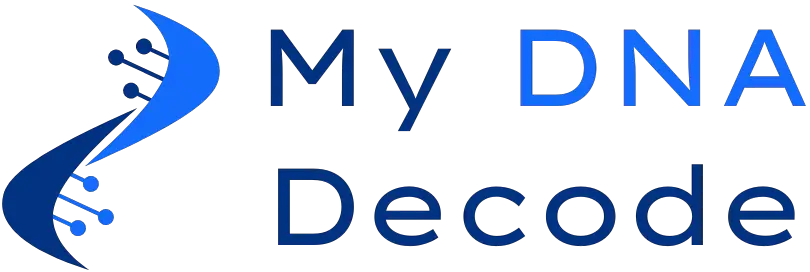Which DNA Test is Best
The 21st century has proven to be the age of genetic reckoning. It’s now incredibly cheap and straightforward to spit into a vial or swab your cheek to learn about your genetic makeup and ancestral history.
In most cases, the results are life-changing and exciting. Over 30 million people have done their genetic tests through companies like 23 and Me and AncestryDNA to learn about their family origins, and gain insights into their risk of certain conditions like cancer, Alzheimer and celiac disease.
However, such DNA testing comes with privacy concerns, and it gets bound by legal guidelines restraining the use of your data.
This is what this website is for, helping you decide if you want a DNA test and choosing the right one the first time.
Which DNA Test is Best for Ancestry
You would want to get an Ancestry DNA test because you would like to know about your family heritage.
There is a lot you can learn about your family history from one of these tests. You can find where your ancestors came from, an estimate of your ethnicity mix and much more.
You can even find lost relatives you didn’t even know you had so that you can reunite your family.
Which DNA Test is Best for Health
People get DNA Health tests so that they are aware of the possible diseases that they have a possibility of getting. this is very powerful as it can allow you to take action against possible sicknesses that are passed down in your genes.
Keep in mind that the results of a DNA test do not mean that you will get a disease they just give you a guide on how likely something is to occur.
Which DNA test is best? If you have found yourself asking this question then we will help you find the answer.
DNA Test Quick Comparison Table
 |  |  | ||
| Price | $99 – $199 | $99 – $199 | $59 | $79 – $469 |
| Features | ||||
| DNA Report | Ancestry and Health | Ancestry | Ancestry | Ancestry |
| Family Tree Builder | Yes | Yes (with a $120 option) | Yes | Yes |
| Ethnicity Breakdown | Yes | Yes | Yes | Yes |
| Relative Finder | Optional | Yes | Yes | Yes |
| DNA Matching Improvements | Yes | Yes | Yes | Yes |
| Details | ||||
| Privacy & Data Sharing | Yes (by consent, subpoena or court order) | Yes (by consent, subpoena or court order) | No | No |
| Test Type | Saliva collection tube | Saliva collection tube | Mouth Swab | Mouth Swab |
| DNA Data Download | Yes | Yes | Yes | Yes |
| DNA Data Import | No | No | Yes | Yes |
| FDA Approval | Yes (details) | Yes | No | No |
| Buy From Amazon *Paid Link | Buy From Amazon *Paid Link | Buy From Amazon *Paid Link | Buy From Amazon *Paid Link |
DNA Testing: Everything You Need to Know
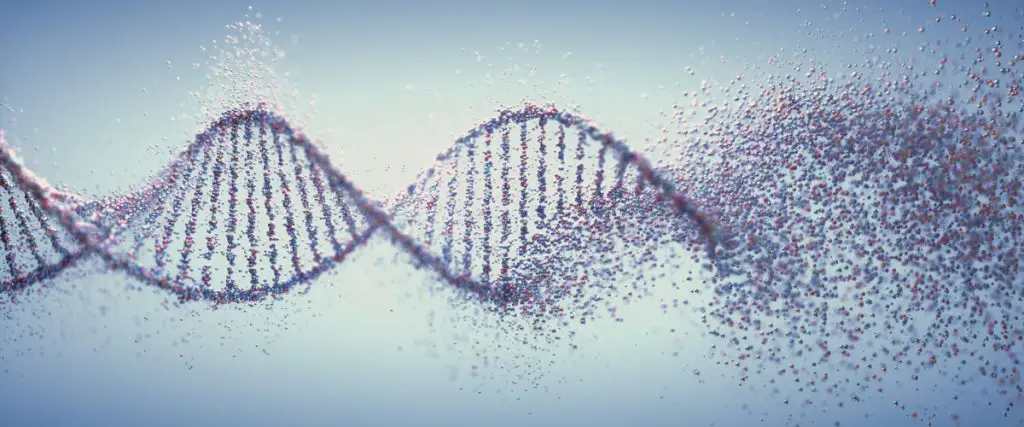
What is a DNA Test?
A DNA test is a scientific test that uses special techniques to identify an individual’s specific DNA. Each individual has a specific genetic code that makes them who they are. This DNA determines hair, eye color, height, and many other physical characteristics. DNA is what makes each person one-of-a-kind.
While everyone has their unique DNA, there are still some similarities between people. For example, most people have two eyes, two ears, and ten fingers. This is because we all share a common ancestor.
We have developed from the same basic template throughout millions of years of evolution. Some people have DNA that is different from the norm. This can be due to mutations or exposure to radiation. These people often have physical features that set them apart from the rest of the population.
In some cases, these differences can be beneficial. For example, people with specific mutations may be immune to certain diseases. Others may have mutations that give them superhuman strength or abilities.
So why embark on DNA tests? We do this for many reasons, including determining parentage, studying evolution, discovering human migration patterns, and solving crime. It’s necessary to have a fundamental understanding of DNA to understand precisely how a DNA test functions.
DNA is the genetic material that makes up every living thing.
It comprises long chains of molecules called nucleotides arranged in a double helix. Each nucleotide contains one of four bases: adenine (A), thymine (T), cytosine (C), or guanine (G). The sequence of these bases determines the information encoded in the DNA.
A DNA test works by identifying the sequence of nucleotides in your DNA. It achieves this using various methods, including PCR (polymerase chain reaction) and sequencing.
Once identified, your sequences can be compared to other sequences to specify your genetic makeup. DNA tests are incredibly accurate and can be used to identify an individual with nearly 100% certainty.
What Is DNA Made Of?
- Genes: Gene tests look at DNA sequences to see if there are any variations (mutation) in genes that can increase the risk of a genetic disorder. Gene tests may include analyzing a single DNA building block, one or more genes, or examining a person’s entire genome.
- Proteins: This genetic test examines the amount or activity level of proteins or enzymes. Any abnormality in either can imply alterations in the DNA that result in a genetic disorder.
- Chromosomes: In this case, the entire chromosomes or extended length of DNA gets examined to deduce whether there are apparent alterations, such as an extra copy of a chromosome that causes a genetic disorder.
How Much Does A DNA Test Cost?
The cost of a DNA test is mainly dependent on the type of test and how much of your DNA gets sequenced. A small DNA test that looks at only a few SNP’s can cost as little as $25.
A diagnostic test to decode the entire genome can easily cost more than $1000. An ancestry DNA test currently costs about $99 in the United States, including shipping and applicable taxes.
The cost of ancestry DNA includes a DNA test kit and a lab processing fee.
How Accurate Are DNA Tests Kits?
The accuracy of DNA tests depends significantly on the type of test that is being taken.
A DNA paternity test is nearly 100% accurate.
DNA ancestry tests are valid as long as a reputable testing company handles them. It would help if you endeavored to research the reliability of the testing company before choosing it.
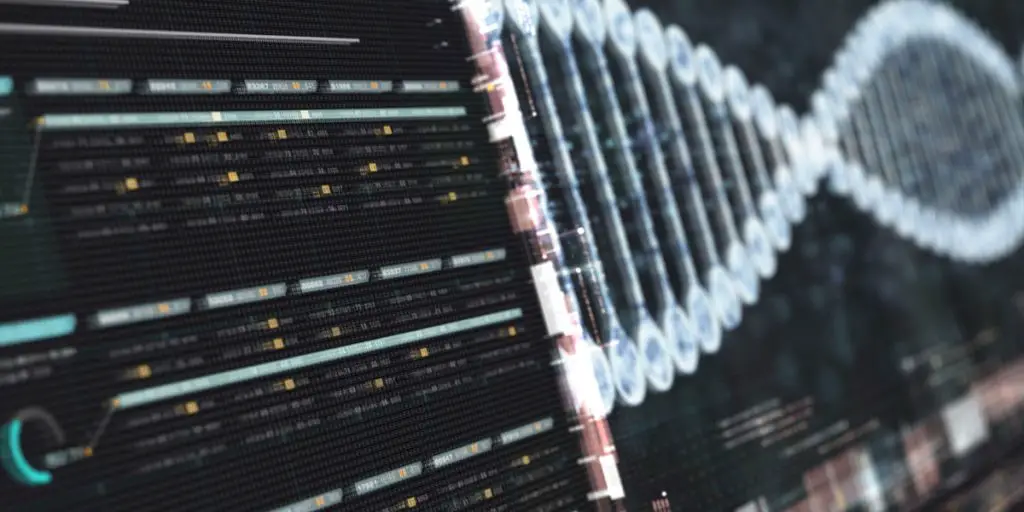
How Are Genetic Tests Done?
A genetic test gets conducted on a sample of blood, skin, hair, and amniotic fluid. You can use a cotton swab to collect a sample of cells from the inside of the cheek. Send the sample to the laboratory for analysis. These samples are then placed on special microchips called a “DNA Microarray”.
These special chips then read the information from the DNA sequence and send it to a computer.
What Does DNA Testing Tell You?
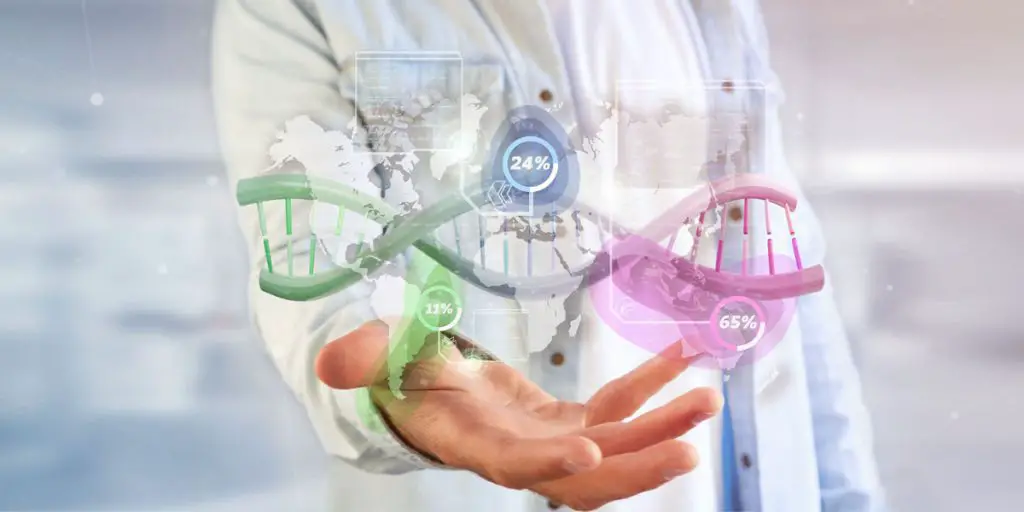
DNA Tests can tell you about your ancestry, how your body functions, if you have genetic conditions, how susceptible you will be to diseases and more that is being discovered all the time.
DNA testing gives you insight into your body. The advancement of science and technology has made it possible for people to have an overall idea about their health, nutrition, and fitness.
Genes are found in chromosomes that contain DNA. We get our genes from our parents. Our gene structure determines how our bodies grow and regulate themselves. When genes are normal, they function correctly.
On the other hand, when genes are abnormal or damaged, they can cause diseases. These are known as gene mutations.
Some gene mutations are hereditary and can be the sole cause of a disease. DNA testing A Look at your genes to check if there is any mutation that may reveal:
- Your risk of getting a particular disease that can be.
- The risk of passing a disease to your children.
- A disease or a type of disease
- The cause of the disease.
Similarly, ancestral DNA testing or genetic genealogy can help provide clues about where your ancestors might have come from and the relationship between families.
How Long Does DNA Testing Take?
Ancestry and health DNA testing kits that link you with unknown relatives and provide a health report often return results within 6 to 12 weeks. You should note that the return time for your results is determined mainly by the volume of tests the laboratory has to carry out.
If you purchase your DNA testing kit during the winter holidays or when the company has promotional sales, you should expect a much higher waiting time to receive results.
That’s because a massive rush of returned kits creates an extended backlog of testing for the company’s laboratory.
Laboratory DNA test results can take as little as two working days, depending on the laboratory and why you are having the test done. On the other hand, some laboratories may take as much as ten working days to provide your results.
So, it is not strange to have your results in just hours. There are times when the laboratory may not have a backlog of DNA samples to process. How quickly your sample gets examined with results returned to you depends on just how busy the laboratory is with its testing queue.
Paternity DNA test times may vary. However, you can have your test results within three to five days to a week. If a doctor is ordering the DNA test, the result may take up to three days to two weeks, depending on the kind of DNA tests the doctor had ordered for you.
How to mess up a DNA Swab Test?
If you have decided to do a DNA swab test, it is crucial to make sure your sample arrives in the lab in good condition.
Several things can go wrong during the sample collection process, reducing the likelihood of you receiving a viable sample.
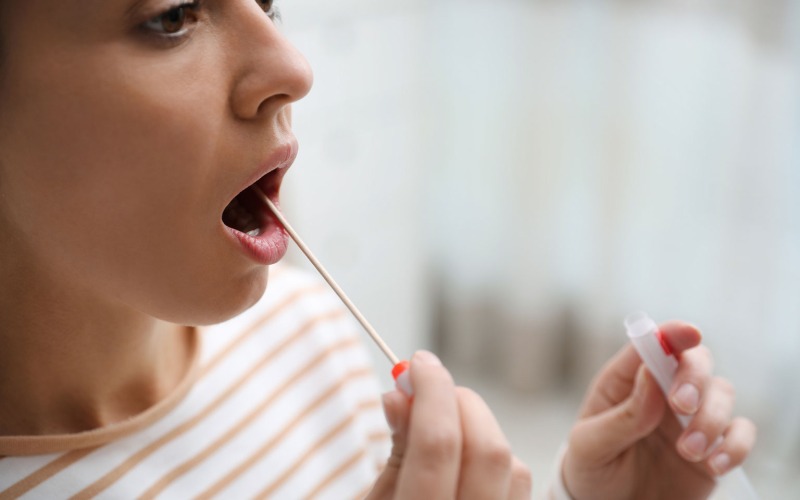
- Cross-contamination may occur when you touch the swab tips with dirty hands or when the swab gets dropped.
- When you eat, drink, or smoke for at least an hour before taking your sample.
- Failure to tightly close the specimen tube to activate the swab’s drying mechanism.
- Brushing your teeth within an hour of collecting your sample as your mouth may be too clean.
- Aggressive swabbing may produce small amounts of blood that can introduce an inhibitor that may prevent you from getting enough DNA.
In such cases, most laboratories would declare a low call rate once there is an issue with your samples. The company would send a brand-new kit for recollection at no extra cost to you.
How Does a DNA Health Test Work?
DNA tests take some material from your body. Generally, saliva from the mouth and extract DNA from it. This DNA is then placed on a microchip that can read the approximately 3 billion base pairs (individual changes in the code that makes you, you) in your chromosomes.
From all this information 99.9% of it is the same for every person in the world. This means that there are around 3 000 000 changes in your DNA that make you and everyone else unique. This is exactly the information that DNA testing companies look for and record, these single changes are what is called SNIPs. This is simply a single place in your DNA that something is different.
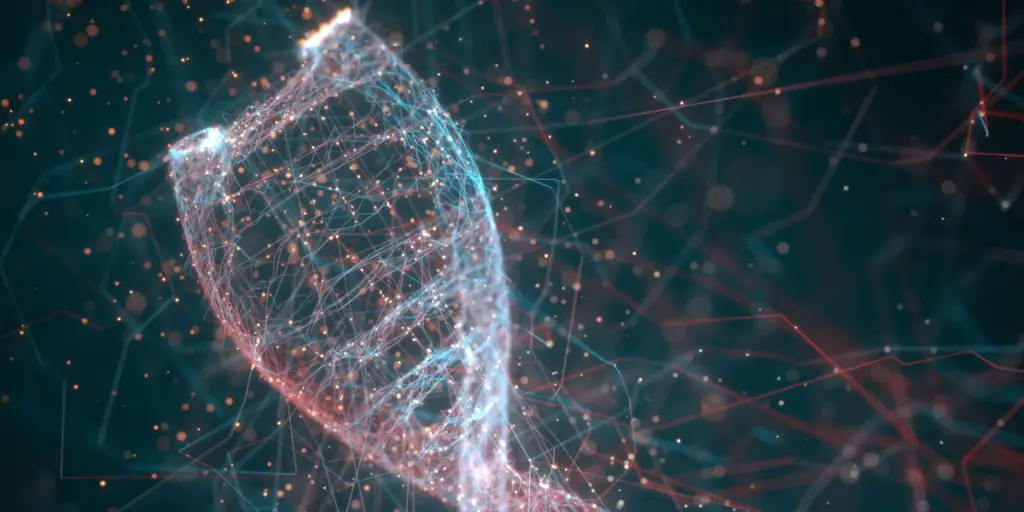
The combination of all the information that we all have and your specific 3 Million changes are what make you, well you. This is why it’s so important because this is what allows DNA companies to work out what these things mean to all us humans.
While genetics is very complex some traits are very simple to identify, blue eyes, hair colour and others can be very simple to identify. While some other traits like, intelligence and physical ability may have hundreds of different changes in your genome that interact in extremely complex ways. This is why some things are easy to identify and others are not.
Research is ongoing and continues to identify new sets of genes that are believed to be responsible for different traits and genetic diseases. This is why many genetic testing companies continue to update their information as new research is published.
How To Do A DNA Test At Home

DNA tests can be done in the comfort of your home. However, you must note that home DNA testing only covers DNA sample collection. Professionals in the lab conduct DNA extraction and processing.
You can purchase your DNA testing kit from a drug store or directly from a lab. Some lab gives you the option of buying your DNA testing kits from stores or directly from them as the tests are the same.
Samples for a home DNA test can be saliva, cheek swabs, or blood drops, depending on the type of test and the company you are testing with.
Cheek Swab
- Remove the first pair of swabs inside your DNA test kit. Ensure you do not touch the tip of the swab.
- Fill out the information required on the envelope used to pack the swab. Make certain that you complete and sign the required details on the outside of your envelope.
- Roll the tip of the sample collection swab firmly on the inside of the right cheek. Allow the swab to dry at room temperature for at least 15 minutes. Place the used swab in the sample collection envelope.
- Seal the envelope and mail it back to the laboratory.
Saliva collection kits
The saliva collection kit is relatively easy to use. Typically, this procedure entails swishing a liquid around your mouth and spitting the specimen into a collecting device.
Your DNA test kit includes the transportation supplies for your saliva sample. Place the collection tube containing your sample in the plastic specimen bag then the bag in the box.
Seal the kit after removing the adhesive strip from the kit strap.
Precautions to take
- Refrain from drinking coffee or tea or using tobacco products. Coffee, tobacco, and tea residues may cause samples to fail to process correctly.
- Hands must be thoroughly washed, and ensure you rinse your mouth at least three times with warm water.
Do Siblings Do Have The same DNA?
Siblings inherit their genes from the same parent. So, you might be thinking you should share the majority of your DNA since it is coming from one source.

Well, genetic differences between siblings can be pretty noticeable. Siblings share roughly half of their genotype thanks to a process known as meiosis. That is how siblings can have different DNA.
Every child inherits half of their genome from each parent, but it is always a different half.
During meiosis, gametes receive a chromosome at random from each pair.
The likelihood of two siblings inheriting the identical 23 chromosomes set from both parents is nil.
Why You Should Not Get a DNA Test?
DNA testing is not risk-free. Here are some reasons why you should not get a DNA test.
- They are not entirely accurate: DNA testing kits are suitable for revealing people’s ethnic lineage. However, they are pretty inconsistent in determining if someone has a severe mutation.
- Your genetic information may be sold.
- Your genetic information is not kept private: DNA testing companies are capable of reversing your anonymous status.
- Hackers can gain access to commercial DNA databases.
- Your genetic information may be used against you.
